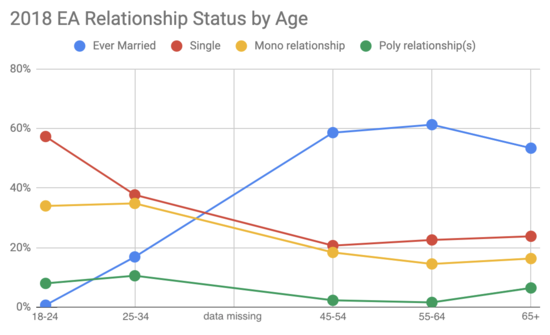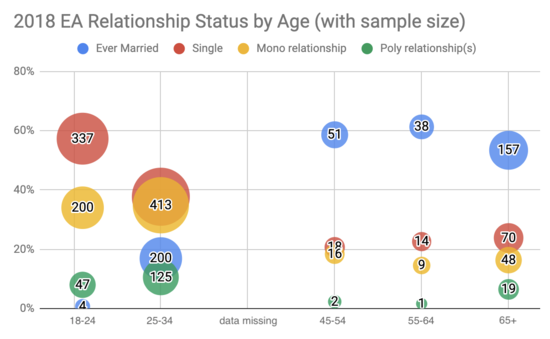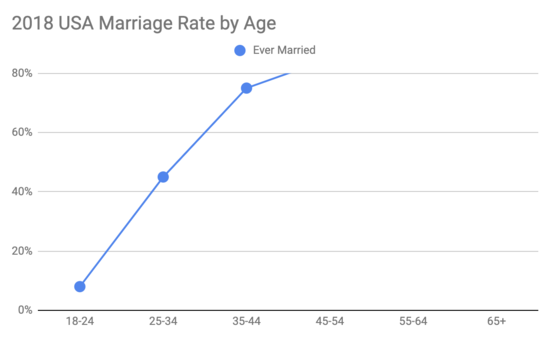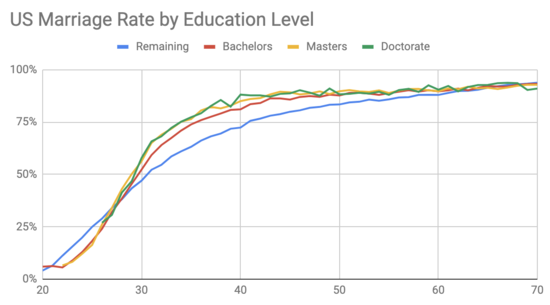EA Relationship Status |
September 18th, 2020 |
| ea |
I'm using "ever married" for people who are currently married or have ever been married, including people who are now divorced, widowed, or separated. Since some of these buckets might be pretty small, let's add sample size information:
The anonymized survey data doesn't have 35-44 data, and the 65+ group looks suspiciously like it has the 35-44 group lumped in with it. I've filed a bug and if they fix it I'll update the post. For now, probably ignore the 65+ group.
For comparison, here's 2018 ACS data (via) for US marriage rates, on the same scale:
And, at least in the US, people with more education are more likely to be married, after age 28:
Now, EAs are not all American, and even then they're different from Americans as a whole in many ways other than being interested in effective altruism. On the other hand, when I look at what fraction of my (Swarthmore) college friends are married, a group similar to EAs in many ways, it's not far from the graph for the US at large. (And it's off in the positive direction). I see similar numbers by school for people who were 30-34 in 2014.
There does seem to be something real here. Some guesses as to why:
- EAs often highly prioritize their careers.
- EAs are generally less interested in having children.
- EAs are often poly.
- EAs often live in group houses.
- EAs are more willing to be weird; less likely to do something because it is the standard thing to do.
Comment via: facebook, lesswrong, the EA Forum



